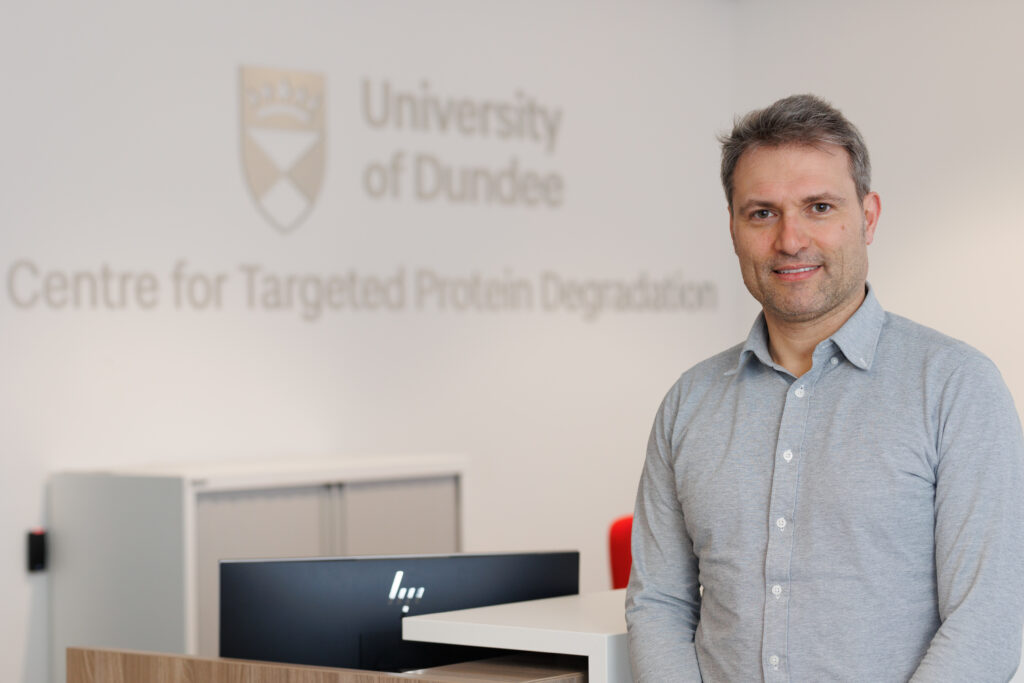RESEARCHERS at the University of Dundee have identified a molecular glue that they say could lead to breakthroughs in medications for certain cancers and neurodegenerative diseases.
The Centre for Targeted Protein Degradation (CeTPD) at the university discovered what is being called an “intramolecular bivalent glue.”
The glue binds proteins that are crucial for the cells that help the body function correctly which can otherwise separate during illnesses such as cancer.
The molecular glueing binds the two sides of the target protein like a protein sandwich, stabilising it.

Since the molecules have two ends which attach to different parts of the same target protein, they are called intramolecular bivalent glues.
Targeted protein degradation (TPD) is an emerging field of drug development to treat degenerative diseases that work to redirect protein recycling systems in the body’s cells to get rid of disease-causing proteins.
Professor Alessio Ciulli, Director of Dundee’s CeTPD said: “These findings have major implications for the entire pharmaceutical industry engaged in targeted protein degraders.
“This is particularly true for the development of drugs that target cancer, neurodegenerative diseases, and many more illnesses driven by proteins that have always been considered undruggable.
“Proteins are essential for our cells to function properly, but when these do not work correctly the body is vulnerable to disease.”
CeTPD collaborated with Dr Georg Winter at the Research Center for Molecular Medicine (CEMM) at the Austrian Academy of Sciences in Vienna, Goethe University of Frankfurt, and Eisai Co.
“The impact of what we have revealed here cannot be underestimated,” added Professor Ciulli.
“This will cause a ripple effect throughout the pharmaceutical industry and has the potential to transform how we view drug development.”
